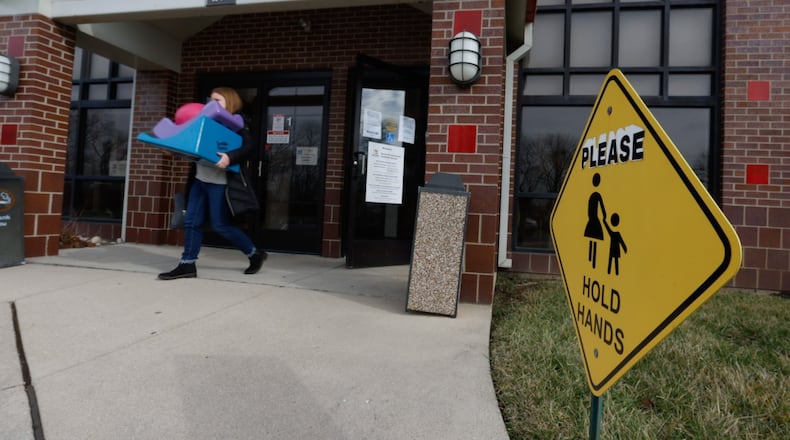County boards of developmental disabilities are required by Ohio law to provide certain services. This includes matching Medicaid waivers, employment support services and more. The board is reducing and eliminating most non-mandated services. The cuts include:
- Eliminating 62 full-time staff positions
- Eliminating mileage reimbursement for all staff, including those who travel daily to provide casework and early intervention services, and overtime
- Reducing capacity in early intervention, a critical but non-mandated service
- Discontinuing its mental health supports and services program, which provided services tailored to more than 125 people dually diagnosed with developmental disabilities and mental illness, and transitioning it to private providers
- Discontinuing the recreation program, which provided year-round programming and respite to children and adults with developmental disabilities
- Discontinuing the family support services program, which provided basic home modifications and supports for families of people with developmental disabilities who choose to care for their loved one at home; equipment and training for people with developmental disabilities and their family members; and respite and camp services for children, youth and adults
- Discontinuing the high school transition supports and contracts, including the school-to-work employment program and funding for the school-to-adult life transition series
- Reducing supports to school-age children and individuals navigating community systems that typically assume independence
- Eliminating funds for training and membership in the developmental disabilities state association
- Eliminating a contract for outside security services
Additional cuts are not anticipated for 2025, Combs said.
The board cited an increase in the number of clients served, and higher costs plus revenue losses from the adult day services program and other income streams that exceeded funds available from two Montgomery County human services levies and the 1-mill developmental disabilities levy.
According to Developmental Disabilities’’ most recent annual report, nearly 82% of the organization’s funding came from local dollars. The agency received $58.7 million for its 2024 budget, approved by the Montgomery County commission.
Since 2006, Montgomery County Developmental Disabilities has experienced a 166% increase in the number of individuals served, but also a 173% increase in waiver enrollment, according to the agency.
Combs said Medicaid waivers are the largest budget item for the Montgomery County Board of Developmental Disabilities Services and are a mandated service. Waivers are used to pay for services that support someone with developmental disabilities, whether they are living on their own, with family, with a roommate, or with a provider through Ohio Shared Living.
Once a person receives a waiver, they are guaranteed this funding for their lifetime as long as they live in Ohio. The Ohio county that granted the initial waiver funding is responsible for continuing to grant the level of waiver funding they authorized, according to the Ohio Department of Developmental Disabilities.
Developmental Disabilities pays 37 cents of every dollar for waiver-authorized services as of 2020, and the federal government pays 63 cents. Services for children and adults who do not have waivers, which represent 65% of the people served by the agency, are paid through local levy dollars.
Credit: JIM NOELKER
Credit: JIM NOELKER
MCBDDS declared a fiscal emergency in 2023, receiving $17 million in American Rescue Plan Act funds from the Montgomery County commission. Half of that funding from this one-time award covered costs related to waiver matches. Expenses like employee salaries and benefits were also covered.
“It went to pay our ongoing costs for doing business. We didn’t start new programs, we didn’t fund new initiatives,” said Combs. “It went straight into helping us meet that deficit.”
In January 2024, the Ohio Board of Developmental Disabilities implemented a 32% rate increase for Medicaid waivers, of which every one of the 88 county boards statewide is expected to pay 8%. In the case of MCBDDS, this 8% equated to $6 million in 2024. The board received its invoice with this updated rate in July.
“That invoice was greater than what had been projected,” Combs said. “That is what necessitated more urgent budget cuts.”
Combs said she and board members consulted with the families that engage in MCBDDS programming and community leaders, as well as other board superintendents and the Ohio Department of Developmental Disabilities.
Combs said the Board has been seeking partnerships to continue programming that serves people with disabilities.
“I’m just so appreciative that the community is reaching out and trying to figure out a way to move forward,” she said.



